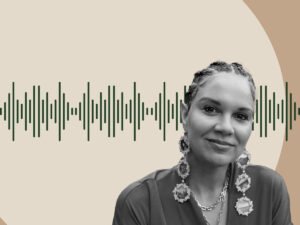The COVID-19 pandemic has highlighted just how much housing and health are interconnected. Indeed, earlier this week, the Centers for Disease Control and Prevention (CDC) wrote that it would be “contrary to the public health” to allow people to lose their homes and ordered an eviction moratorium through the end of 2020.
Of course, the pandemic began in March. What spurred the CDC to act now? A simple answer: tenant organizing. This webinar introduces two tenant organizers—one from Portland, Oregon and the other from Kansas City, Missouri—to share their stories.
This webinar was held on September 1st in partnership with Shelterforce, a nonprofit publication that has been following the housing justice movement for over 40 years. At the time of the webinar, the CDC moratorium had yet to be announced, and the prospect of a mass eviction wave was becoming more and more likely.
Sign up for our free newsletters
Subscribe to NPQ's newsletters to have our top stories delivered directly to your inbox.
By signing up, you agree to our privacy policy and terms of use, and to receive messages from NPQ and our partners.
And, as the panelists all make clear—a moratorium on evictions is a first step, but hardly sufficient. With eviction moratoria in place, many tenants are accumulating rent debt that will be impossible to repay when the moratoria are lifted. The US House of Representatives passed a bill in May that would create a $100 billion rent relief fund, but the Senate has not acted. The struggle for housing justice, in short, continues.
Speakers for this webinar are:
- Miriam Axel-Lute, editor of Shelterforce and a regular writer and analyst of housing justice and community development issues for over two decades.
- Coya Crespin, organizer for Community Alliance of Tenants (an Oregon statewide affiliate of the Right to the City Alliance) based in Portland, where she works on intersectional issues ranging from housing justice to police brutality.
- Maya Neal, organizer with KC Tenants (an affiliate of People’s Action) in Kansas City, Missouri, where she is leading radical actions to protect her community from evictions in the face of the COVID-19 pandemic.
In this webinar, panelists address a wide range of issues, including:
- What is needed, beyond eviction moratoria, to keep people in their homes amid the pandemic
- How to protect tenants in your community, and what steps people who are behind on rent payments can take to protect their families
- What policy levers are available—local, state, and federal—that nonprofits and individuals can use to protect housing in their communities
- The impact of structural racism on housing, and how that is interacting with the pandemic today
- Federal, state, and local policy struggles for rent relief
- Promising housing justice practices that are emerging amid the crisis
- How we can change the narrative on housing to be about housing as a right and not a commodity
- How to connect issues of housing and health, and what health advocates can do to help keep people in their homes
- New paths that nonprofits are pursuing to address housing challenges today
- The role community and nonprofit ownership can play in forwarding a long-term housing justice vision
Additional Resources
- Steve Dubb, Miriam Axel-Lute, Andreanecia Morris, and Amina Kirk, “Housing Justice amid COVID-19: A Roundtable Discussion,” NPQ and Shelterforce, July 6, 2020.
- Josh Cohen, “What Happens if 23 Million Renters are Evicted,” Shelterforce, July 24, 2020.
- Julie Gilgoff, “Giving Tenants the First Opportunity to Purchase Their Homes,” Shelterforce, July 24, 2020
- Miriam Axel-Lute, “How Do We Change the Narrative around Housing?” Shelterforce, July 27, 2020.
- Sasha Hauswald and Stephanie Reyes, “Lasting Affordability Is the Path to Resilience,” Shelterforce, August 2, 2020.
- Emily Bender et al., The COVID-19 Eviction Crisis: An Estimated 30-40 Million People in America Are at Risk, National Low Income Housing Coalition et al., August 7, 2020.
- Beth Couch, “America’s Looming Eviction Crisis Threatens Unprecedented Tens of Millions,” NPQ, August 21, 2020.
- Denise Scott, “Federal Action Could Still Head Off an Eviction Wave, but Time Is Running Out,” NPQ, August 31, 2020.













